Hurdling over the Dolomites
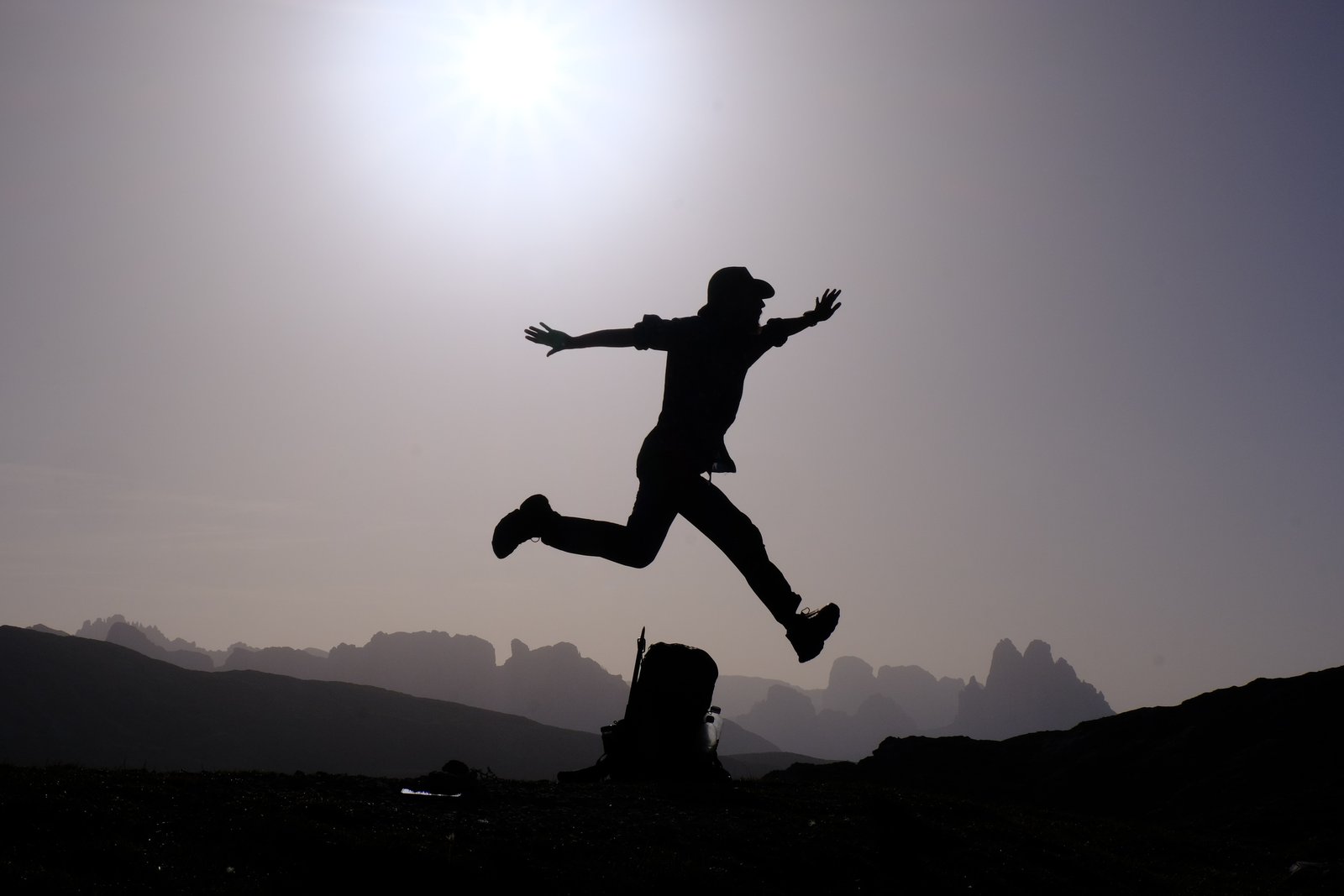
August 23rd, day 78. The Dolomites just looked incredible. I’d hold on to that as I began the climbing a couple of hours later — because in this heat I’d need all the panting positivity I could summon, all the water too — but even before I was in them they were a magnificent sight.
By early evening I’d made it to the lake. Lago di Braies, cradled by the Prags Dolomites, is a little oasis (or “Pearl of the Alps” according to the tourist board) formed by a landslide from the Herrstein. A majestic place to linger before turning back to the up, up, up.
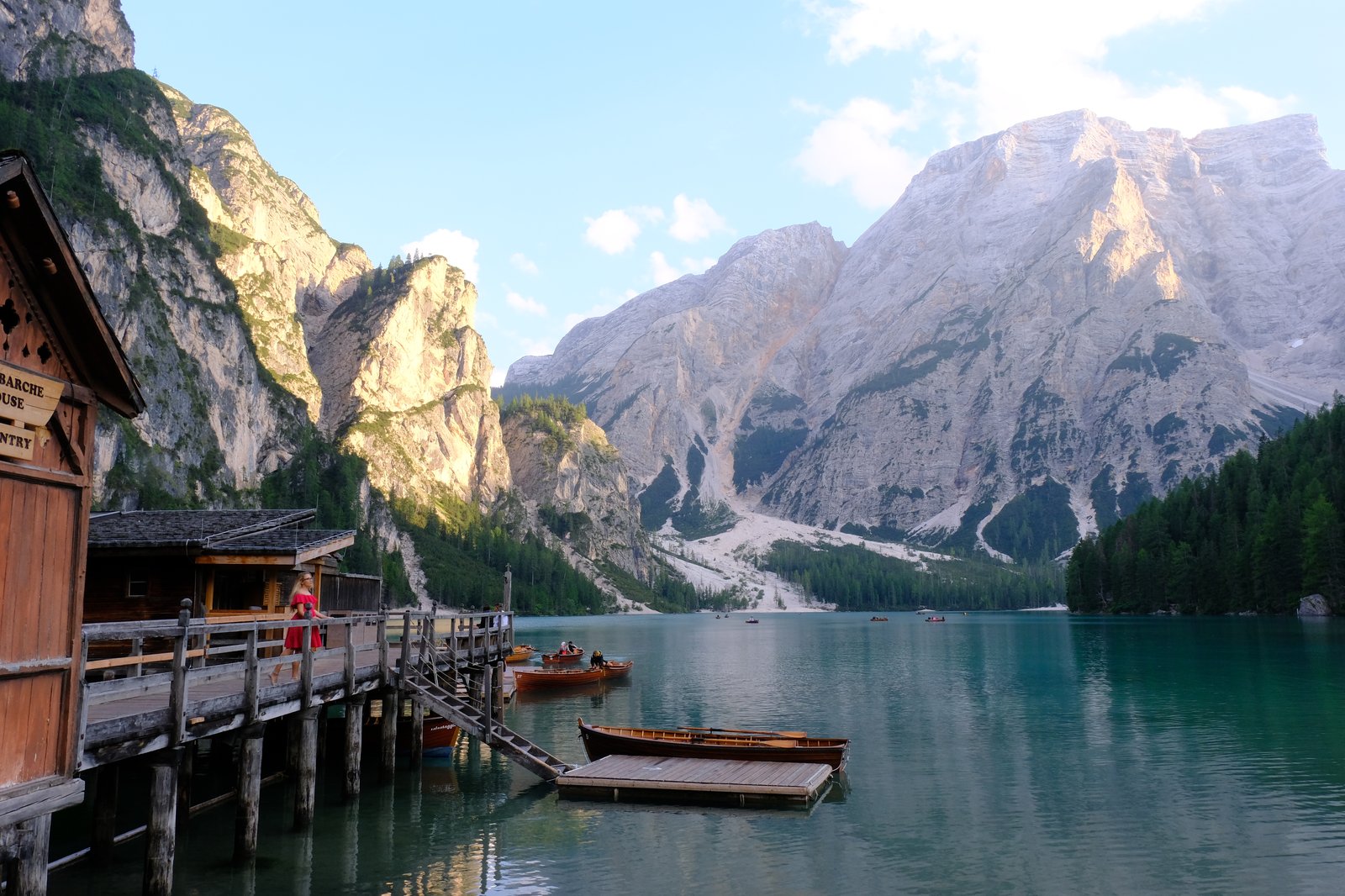
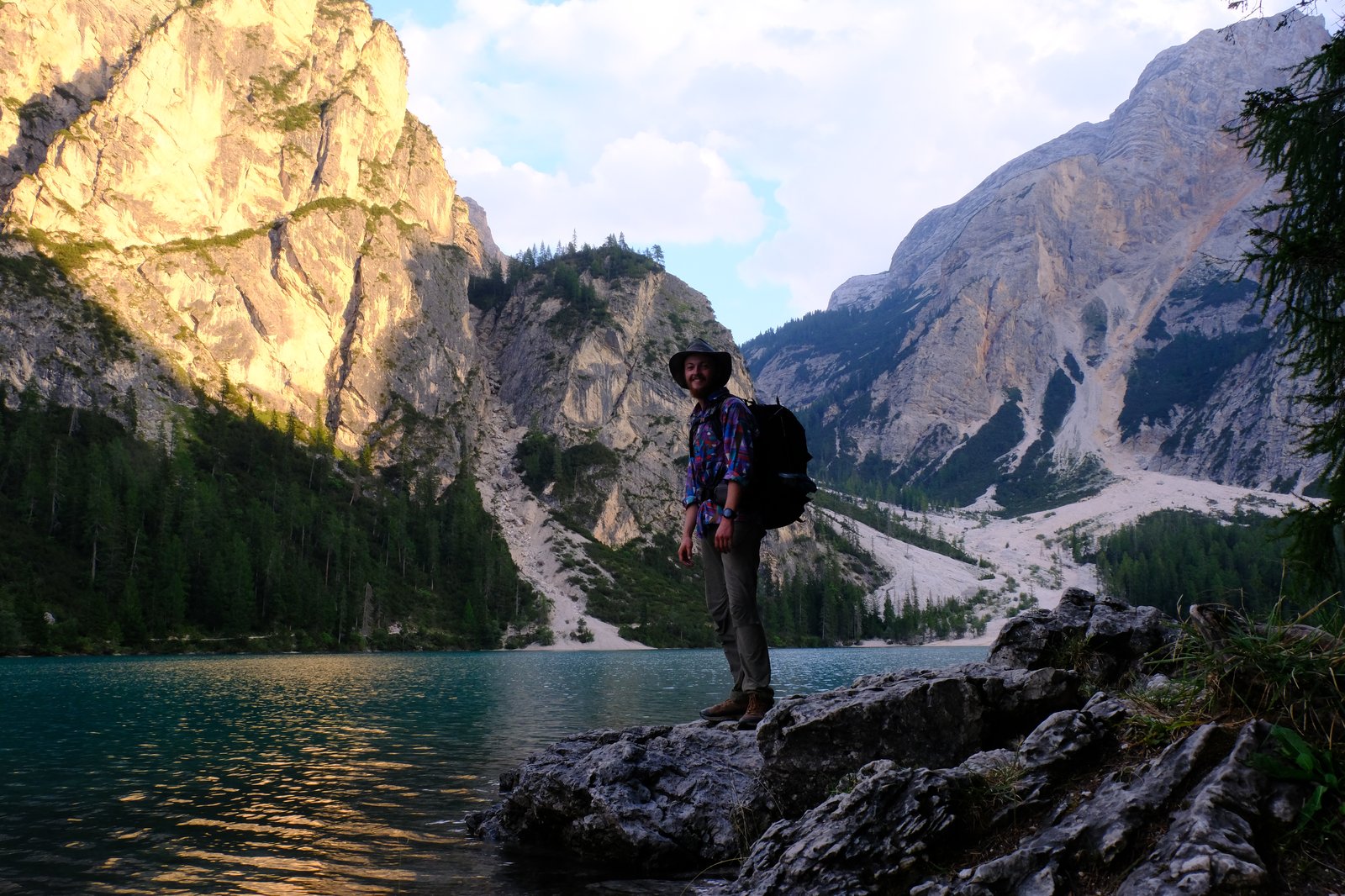
That bright white scree slope behind the lake was my route up. There weren’t too many tourists, and even fewer as I left the easy-access, photo-and-back-to-the-car end of it.
After a long pause at the lake edge — one eye on the route up, two feet in the water — it was starting to dim. I put my pack back on, filled up my water, and hustled up the scree, chasing the dying light that was running off behind the peaks. Directly above, the evening sky was clear, free of clouds as it turned from blue to orange to mauve, until finally drifting into it’s slumber of grey and black. Ahead the skies were not so clear, lightning flashed constantly through the V-shaped window of the rising valley. It was far off, no sound followed the flashes, but I was heading straight for it — luckily I love lightning almost as much as mountain marching, so the two together is the purest euphoric bliss.
I love walking in the dark too, at the extremes our senses seem most impressive, trusting in them when they’re right at the limit is a thrill. In the dark you move more by the feel of the rock under foot than by the nearly nothing you can see — more subliminal than cerebral — striking a balance between the urge to move ever faster and the voices of caution in your head. You trip on an unseen boulder, or slip on a fine scree and slow for a while, you nearly reach for the torch but stop yourself because then you become blind without it, speeding up again, pushing on while the mountains seem to whisper ’this way’. It only really works while climbing; descending beyond the fringes of darkness becomes tedious, achingly trepidatious, that’s when you need a torch, but on the way up? leave it as late as possible, until you really can’t see anything, then out with the torch. You realise you’ve made it to the Col beneath Croda del Beco, the days climb is finished; up goes the tent, down goes the boy, on rolls the lightning.
The storm stayed distant and in the morning I woke to the sun rising against Seekofel’s brilliant orange face, raw where it still crumbles; those bright spots make the mountains seem younger, less sure of themselves, but more alive. All night long rock falls had echoed off the mountains, sometimes for minutes on end. Cracks like gunshots as large rocks tore loose off the cliff above and plummeted to the slopes below, shattering into multiples, followed by the sound of a hundred ricochets, each one quieter than the one before until at last each piece has found it’s home atop the heap that has been growing in this way for millennia.
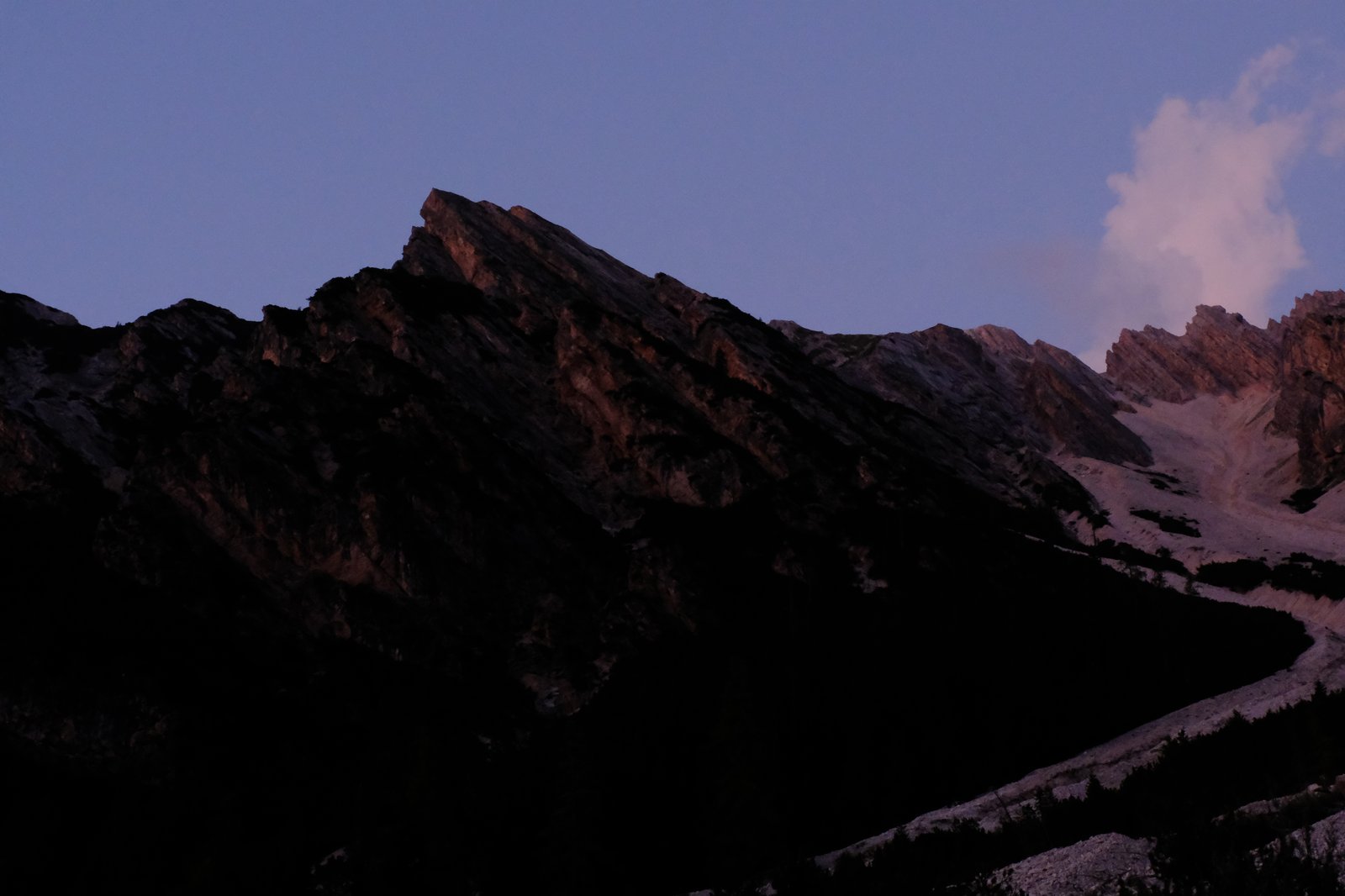
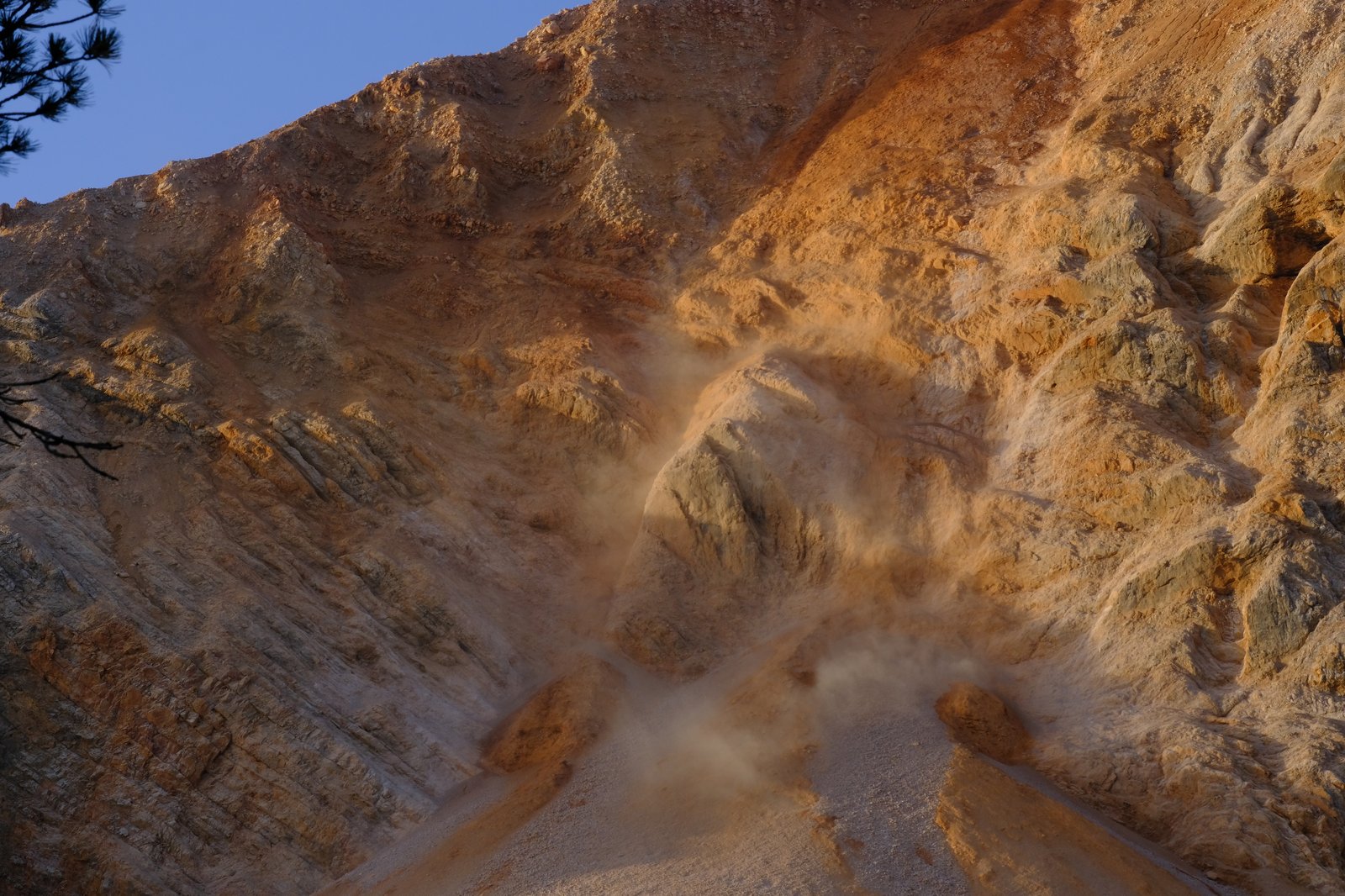

The descent was smooth enough, but I was glad I hadn’t started down in the dark; loose, steep in places, and too beautiful to miss. All day long I was inching closer to the Tre Cime di Lavaredo or Three Peaks of Lavaredo. In the middle of the afternoon I got my first ‘frontal’ look at them and dared myself to go no further, I wanted to spend the evening with them, and the morning too.
Between lago and Lavaredo I hadn’t met a soul, but that ended abruptly as I passed into the orbit of these icons of the Alps. There are refugios on the passes, where overnight hikers coming from the other side can stay. Too rich for my tastes, but the easier access from the east meant that the slopes around Lavaredo were, in places, teaming with day trippers and overnighters.
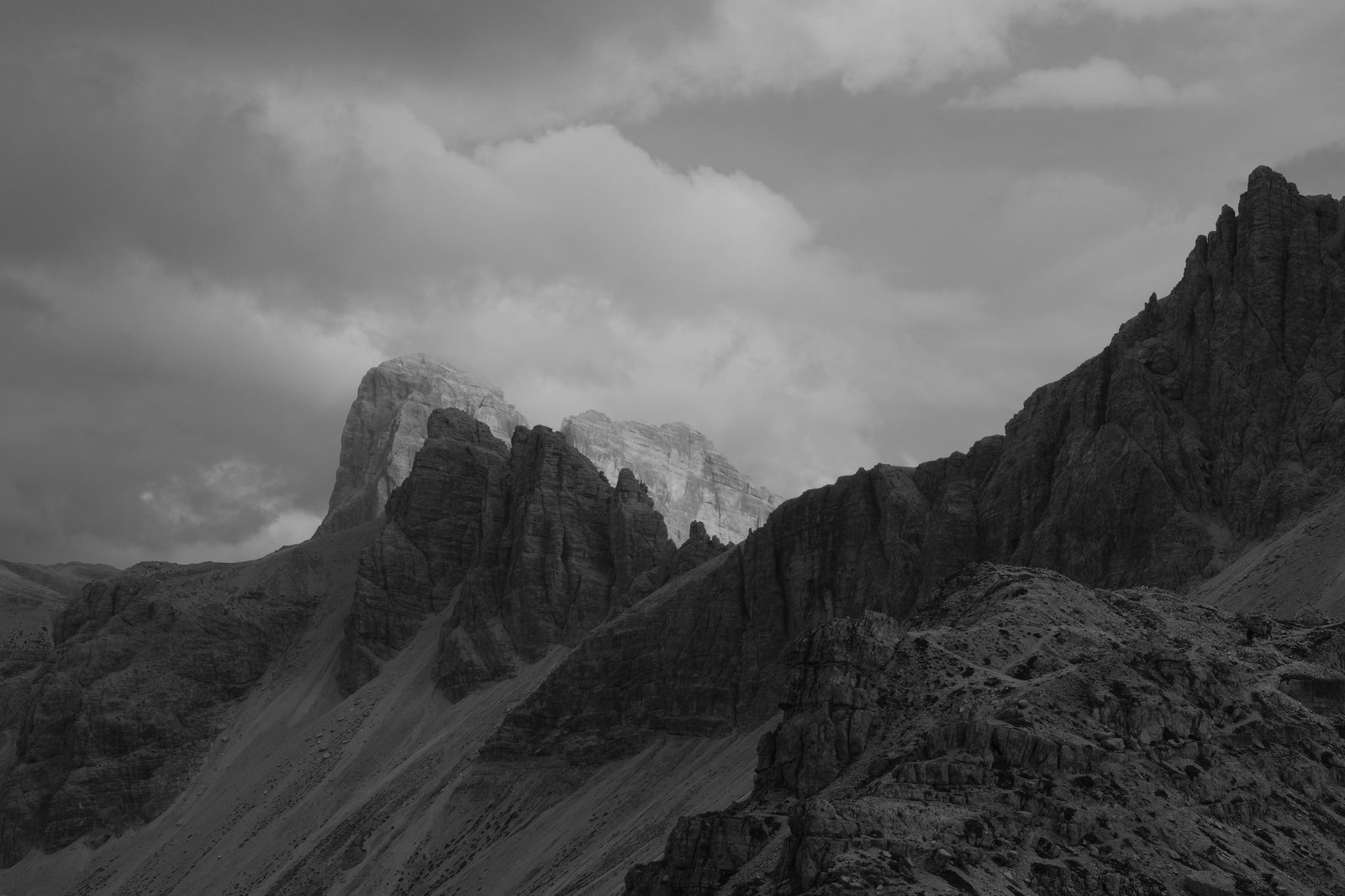
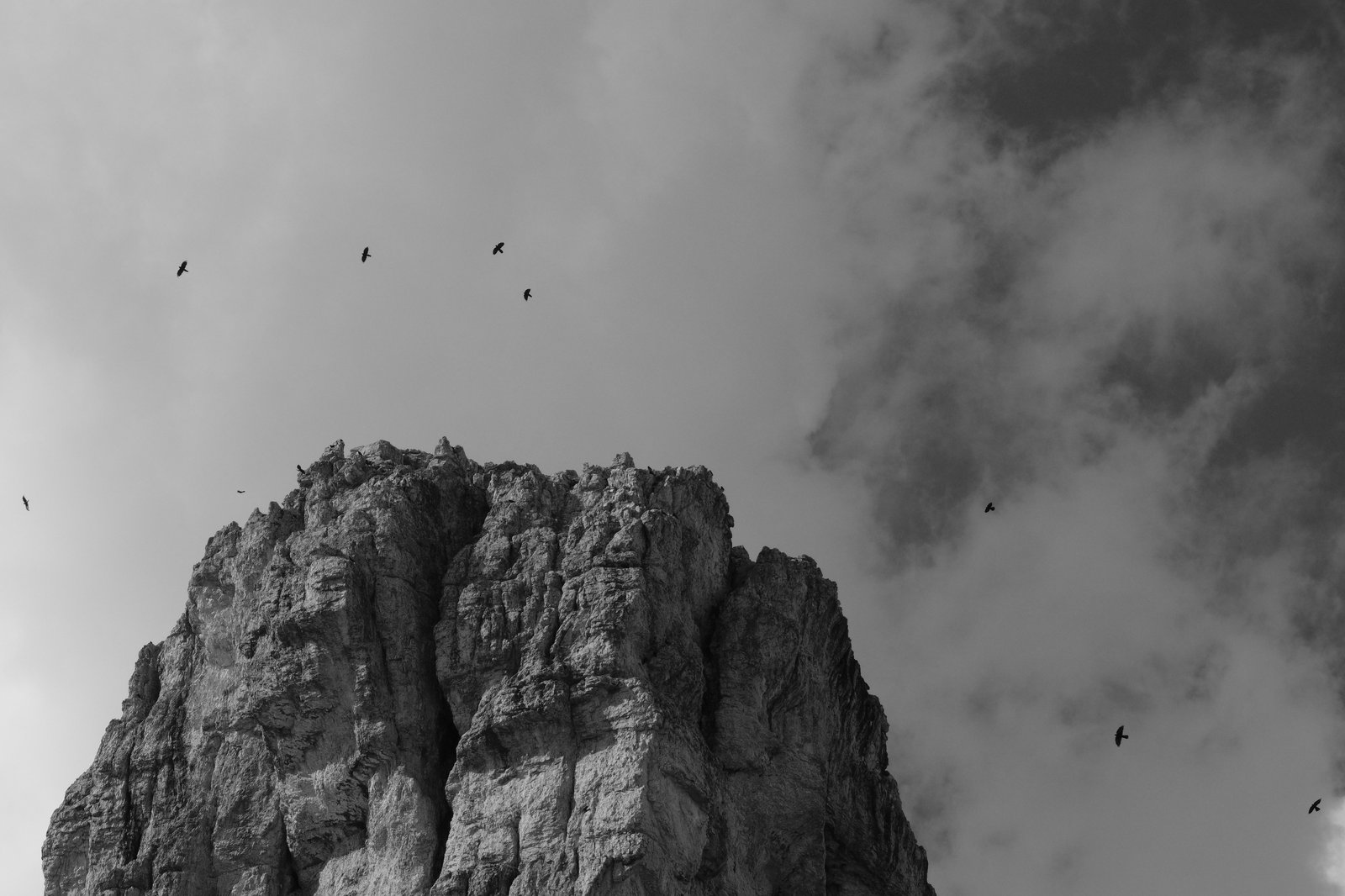
I chatted to a few groups. To anyone who asked I just said I was doing an overnight too, I didn’t feel like the usual round of “you’re doing what!”. I helped a few couples take photos together, saving them from the rigmarole of one selfie together, then each taking a separate photo of the other from further back in order to squeeze in the mountains too. Knowing what language to use for greetings still hadn’t gotten any clearer though.
The blurred edges of countries, regions, and language are a constant source of entertainment when travelling like this. Yesterday I had been in an Italian supermarket, ready with my “Ciao, come stai?”, only for the cashier to greet me in German, at which point I immediately forget my own name. I recover just in time for her to give me my total in Italian, “carta, per favore” I manage to say, and then we’re back to German for our thanks and goodbyes. At least this time I managed not to slip into any French.
I’d love to think that this unrelenting variety would turn me into a polyglot, though the reality is something more like dizziness, it is fun though.
When I’d met Aleksanteri at the beginning of my journey into the Alps, a month ago now, he’d been nervous ahead of his descent into French speaking Switzerland. He spoke some German so had been fine to the east, but no French, in that way we were like two separated halves of a completely sufficient Swiss vagrant. I said that Je ne parle pas français should see him right, that English tended to appear readily when any chance of misunderstanding arose, much more so than in France at least.
Only a handful of hours before, I had been almost plaintively asking Marie — one of a pair of hikers I got talking to atop the Col des Martinets (2615m), looking down into the Nant Valley — “when will I need to start speaking German?”. Basically now, she’d said.
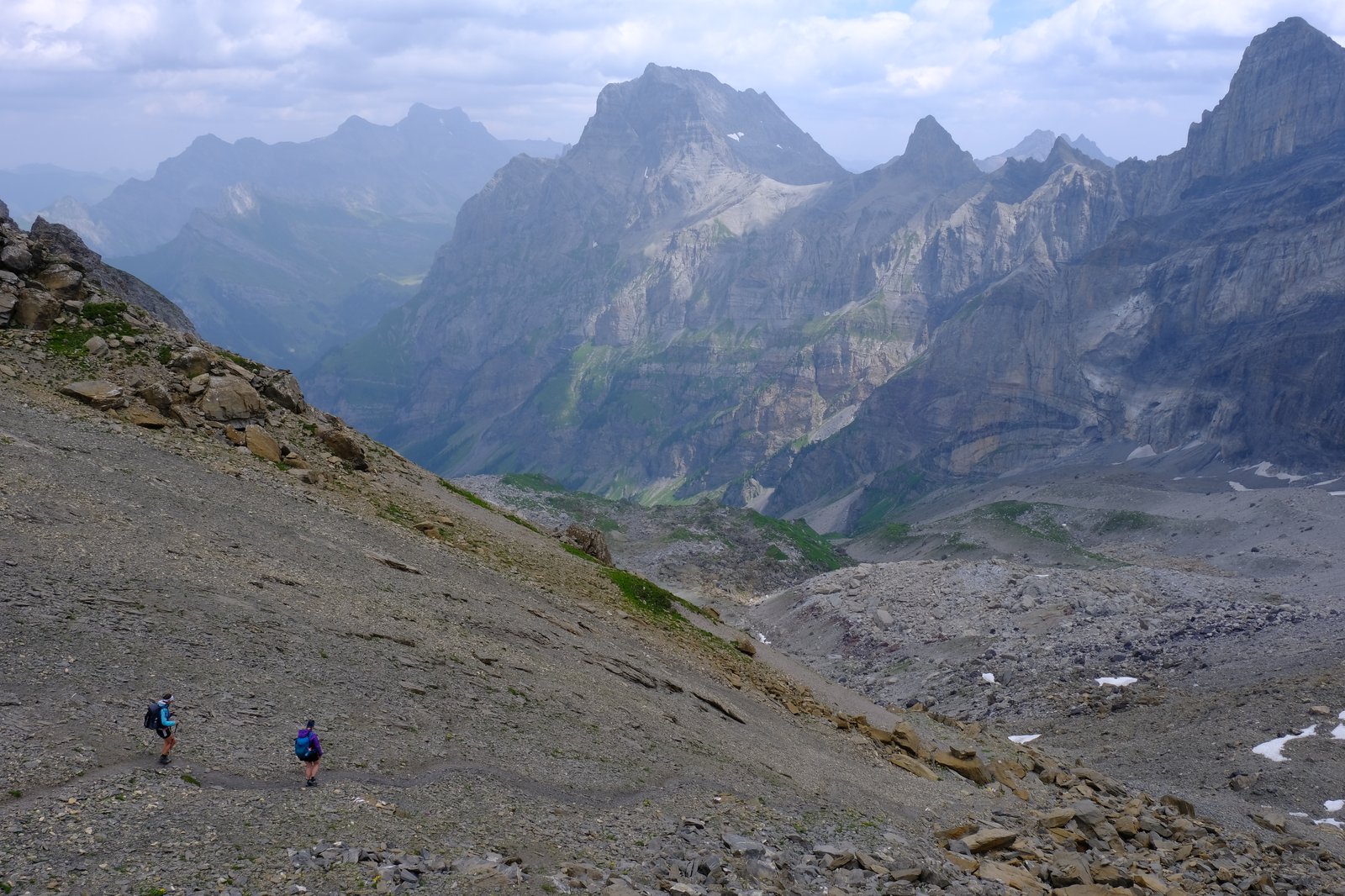
As it happened, my first extended conversation after descending into a German speaking valley was with Milosh, a Slovakian who spoke four languages, English among them. A welcome stay of execution. Milosh knew something about language for sure. He’d been all over, working in the Balkans, eastern Europe, Greece, Morocco, and now Switzerland; labouring and security mostly. While he told me all this, in imperfect but good English, Marek, one of his several Slovakian housemates arrived home and set about teasing Milosh for these tiny imperfections.
I defended Milosh and Marek laughed and changed the subject, asking where I was from. Incredibly, he knew Bristol well. Whenever he can he gets over there for the music scene. He rattled off a long list of apparently world class groups and musicians that I’d never heard of, but Marek was unphased, he gave the impression of being used to people’s ignorance of the EDM scene, if he was disappointed it washed right off him. Mostly he was just dead chuffed, if bewildered, to find a Bristol boy sipping hot, sweet tea under the eave of his house on a wet Monday evening.
Marek was a man whose head never stopped moving, he was either vigorously nodding or shaking his head at all times, as if the doof doof of Gravity and La Roca (dance clubs in Bristol) still throbbed in his head. As Marek’s head bounced into the house Milosh tried yet again to ply me with cigarettes. I smiled and shook my head again, like Marek this time. Milosh shook his too, slowly, as though my not smoking disturbed something deep in him. “Really?!”, he said.
As I finished my tea, thanked Milosh, and got up to leave, I asked him how I should greet people in German. He equivocated, like the responsibility of coaching me on what to say, and how that guidance would ripple out across Switzerland as I walked was too great. I asked if ‘Guten Tag’ was appropriate, he said cryptically that I ‘would be understood’ but that I could just speak English. I said I wanted to try, that it mattered to me. In the end he sent me away with ‘Hallo’ — casual. Neither of us was satisfied with it, but hallo I would say many times each day until I met Jasmin, Tamara, and Matias.
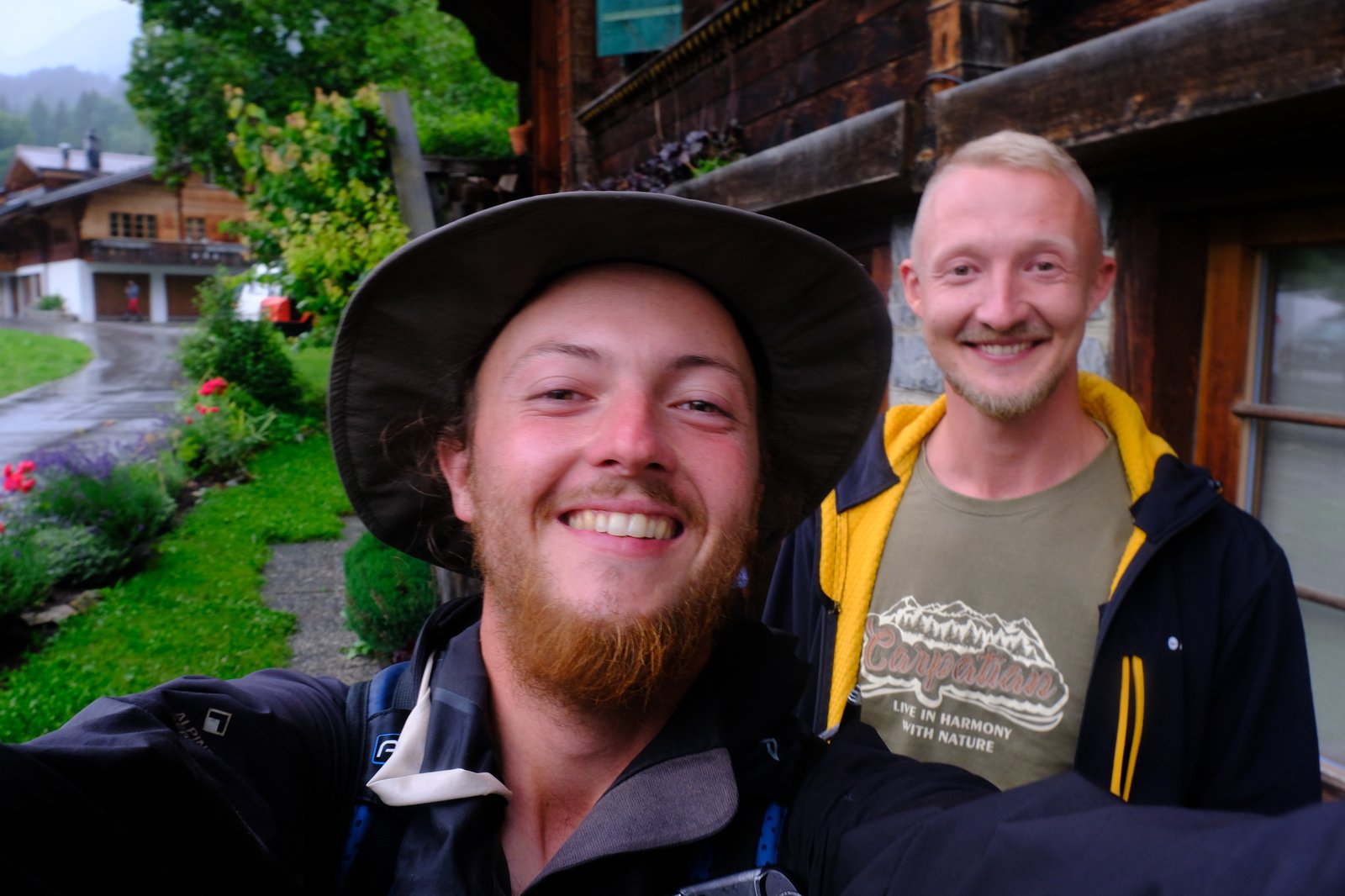
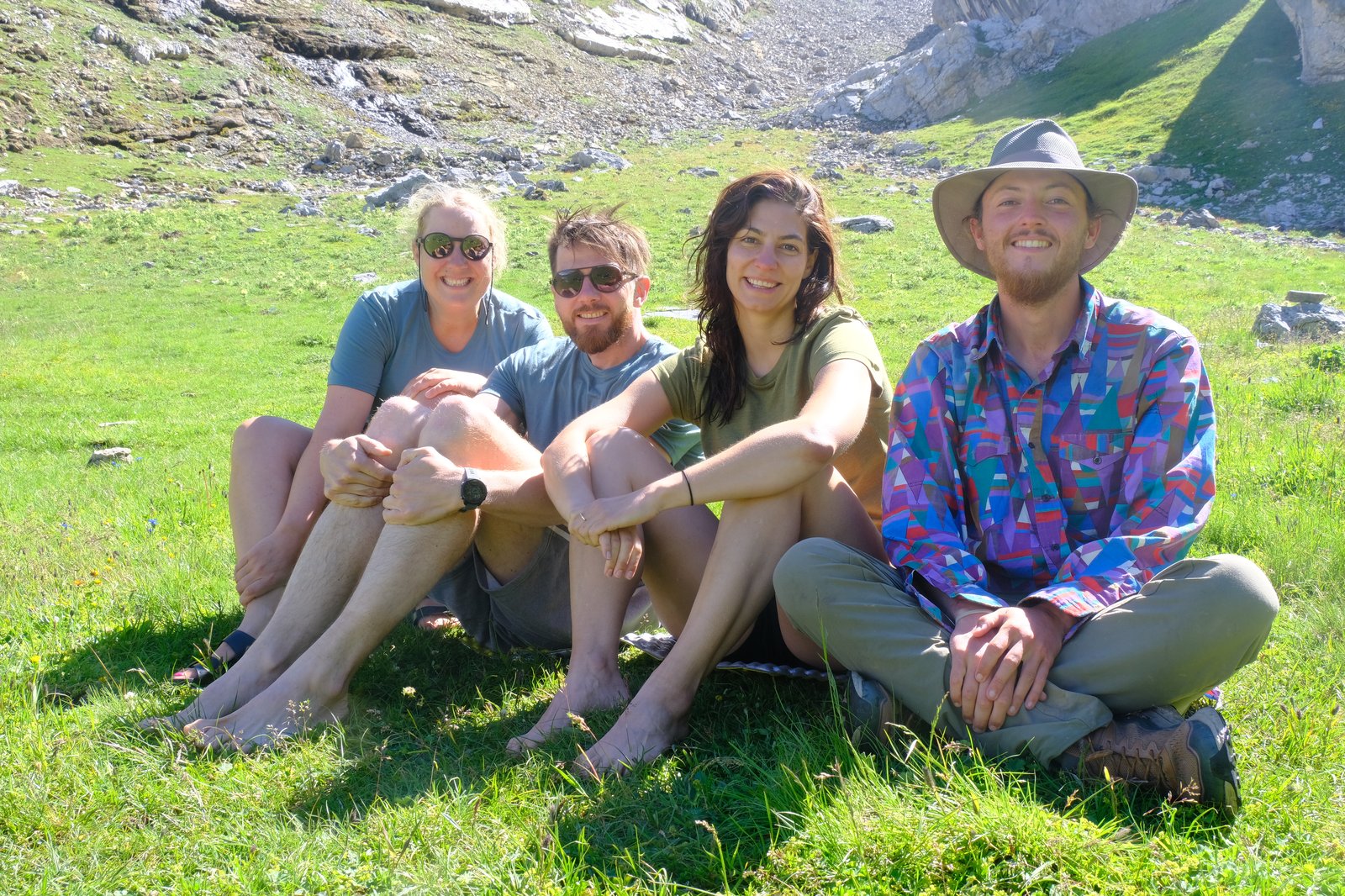
Jasmin taught me ‘Grüessech’. She also said I was sure to forget it, so now I’m sworn to remember it at least as far as India, probably forever. I liked Grüessech, the way it sounded, I enjoyed the shape of it in my mouth, my first taste of Swiss-German as something really very distinct from Standard-German, which has always sounded coarse, harsh to my ear. I’d already noticed that the German I’d been hearing since I’d been in Switzerland was much gentler than any German I’d heard before, but I hadn’t actually learned any yet.
A week later, when I met Rahel, we talked a lot about language. I said I’d been taught Grüessech — though by that point, having moved 200 kilometres East, Grüezi was more often the reply. She said, rightly, that Jasmin must have been someone from Bern, and from her I started to glimpse the rich linguistic tapestry of Switzerland that extended far beyond my naive view of its four national languages, to the many, many regional dialects. Swiss-German alone has more than a dozen, enough that native speakers can always tell in which part of Switzerland a person speaking a particular dialect was born and raised.
Rahel had a beautiful way of speaking, whether in Standard or Swiss German. We both liked each others voices, found each other easy to listen to, and the encounter completely rid me of any trace of that feeling I’d had that German was some inherently rough language. Rahel explained where my impression had likely come from: Berlin. The people of Berlin speak a dialect of German that Rahel said she finds unrecognisable, ugly. True enough, most of the Germans I have met — and from whom I had formed my simple impression of the language — have been from, or lived for a long time in, Berlin.
But that was back in Switzerland, here I was in Italy, what was making ‘the tapestry of language’ here so confusing? These three magnificent peaks revealed part of the why. Up until 1919 they had formed the border between Italy and Austria-Hungary but in 1915 the First World War reached into the Dolomites.
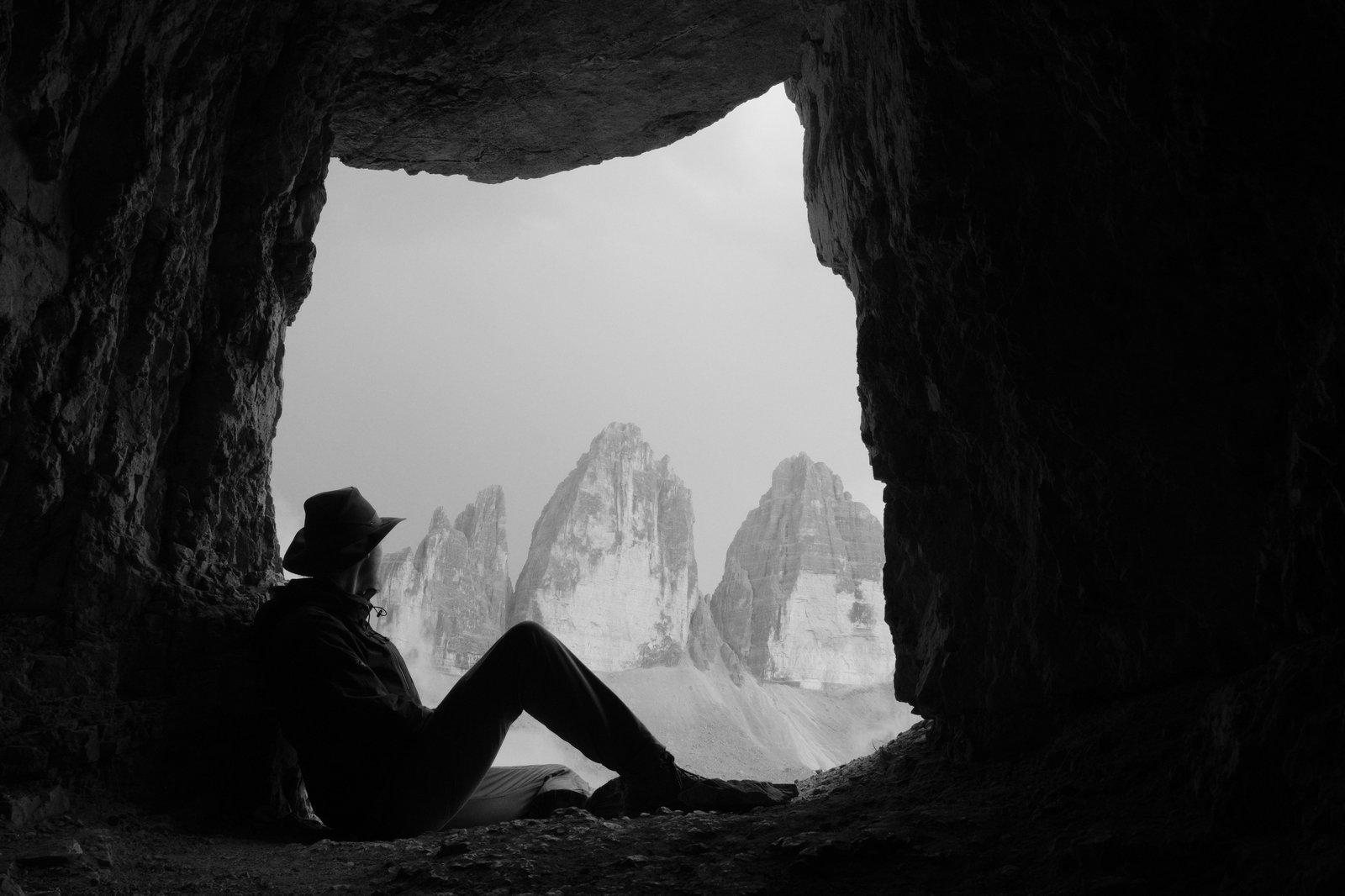
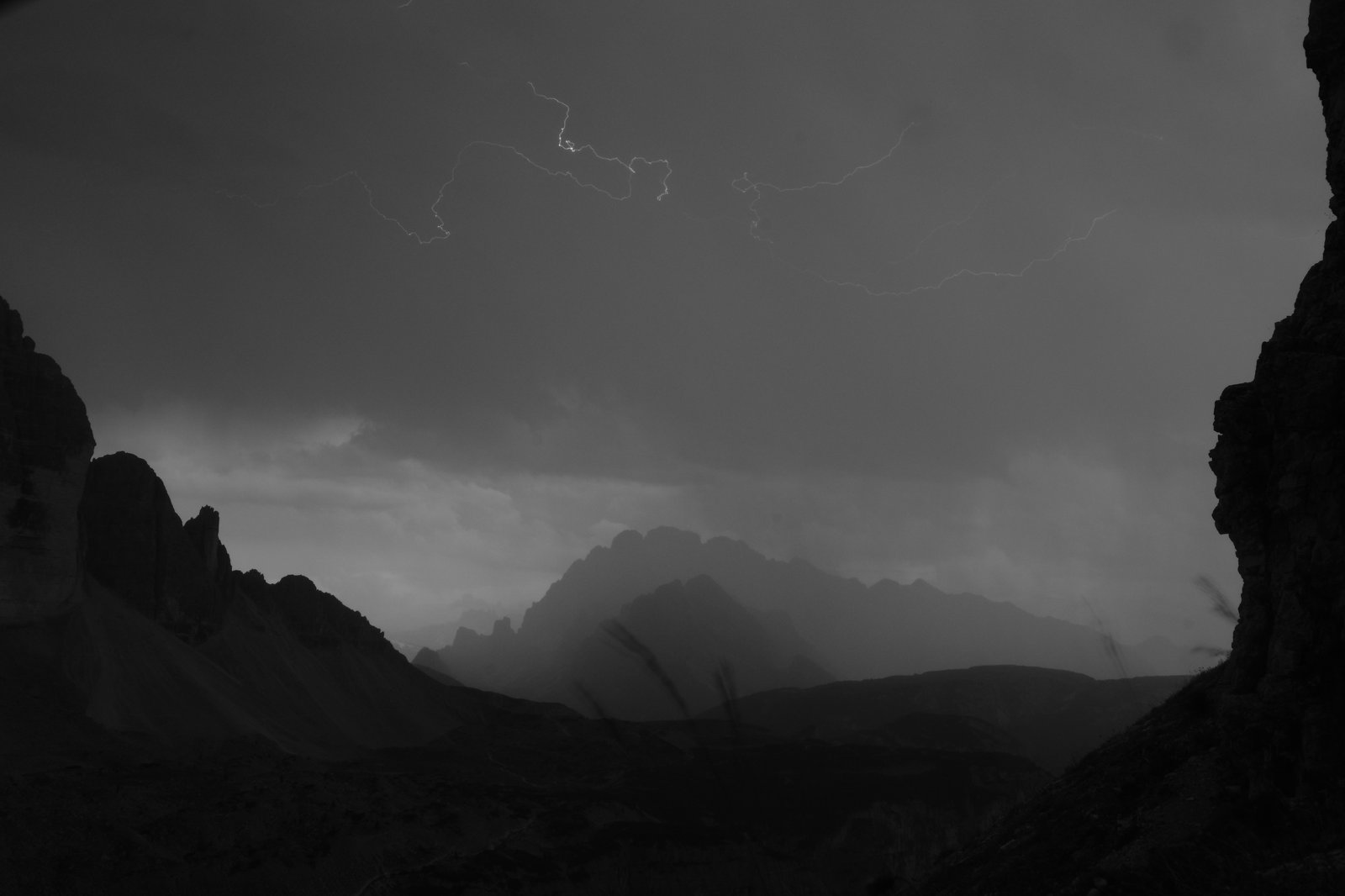
That night I curled up happily in a cave in the sheer face of Toblinger Knoten, looking across at Tre Cime di Lavaredo while yet another lightning storm rolled, this time directly overhead. Glad of my solid shelter I slept soundly.
That cave, and many others like it, were blasted into the mountains during that White War for the Alps. The redrawing of borders after the defeat of the Central Powers means they now stand firmly within Italy, forming the border between the regions of South Tyrol and Belluno, but they still echo that historic border, the linguistic boundary between German-speaking and Italian-speaking majorities.
A front row seat to that brilliant electric night assured me that stopping short of ‘target’ for the day was the right call, but if I had had any doubts they would have been extinguished by the clear calm that met me when I woke the following morning.
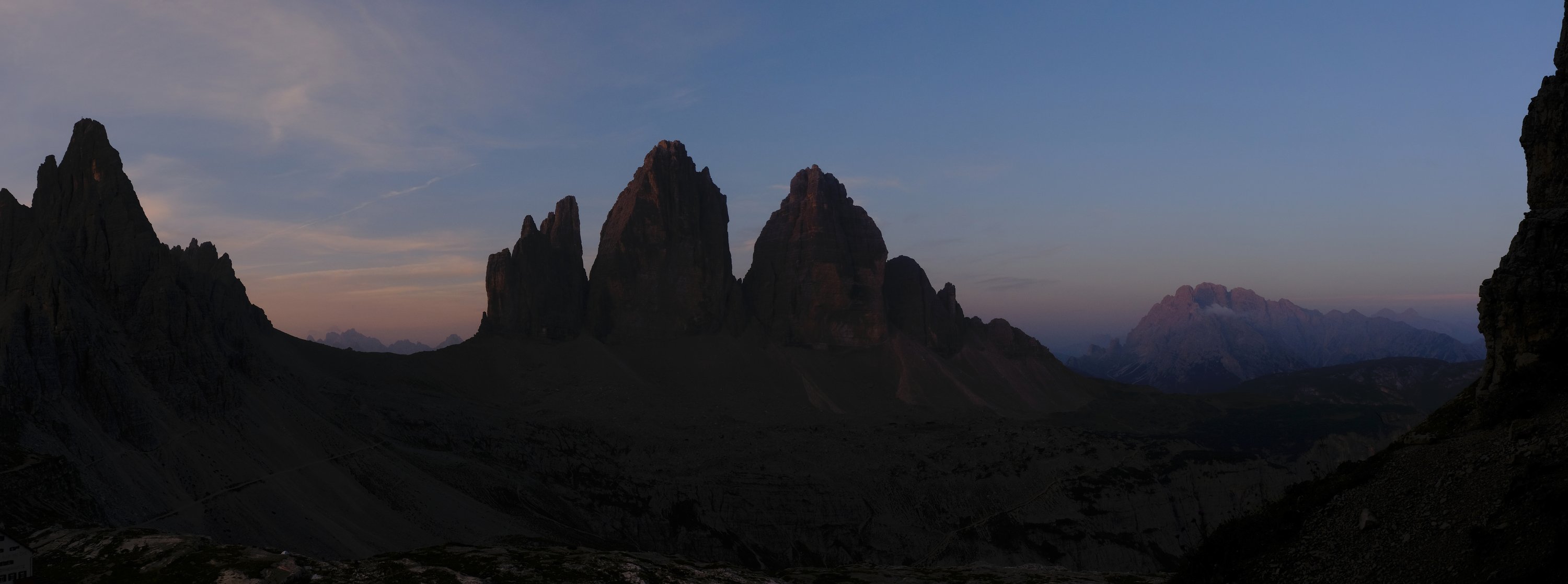
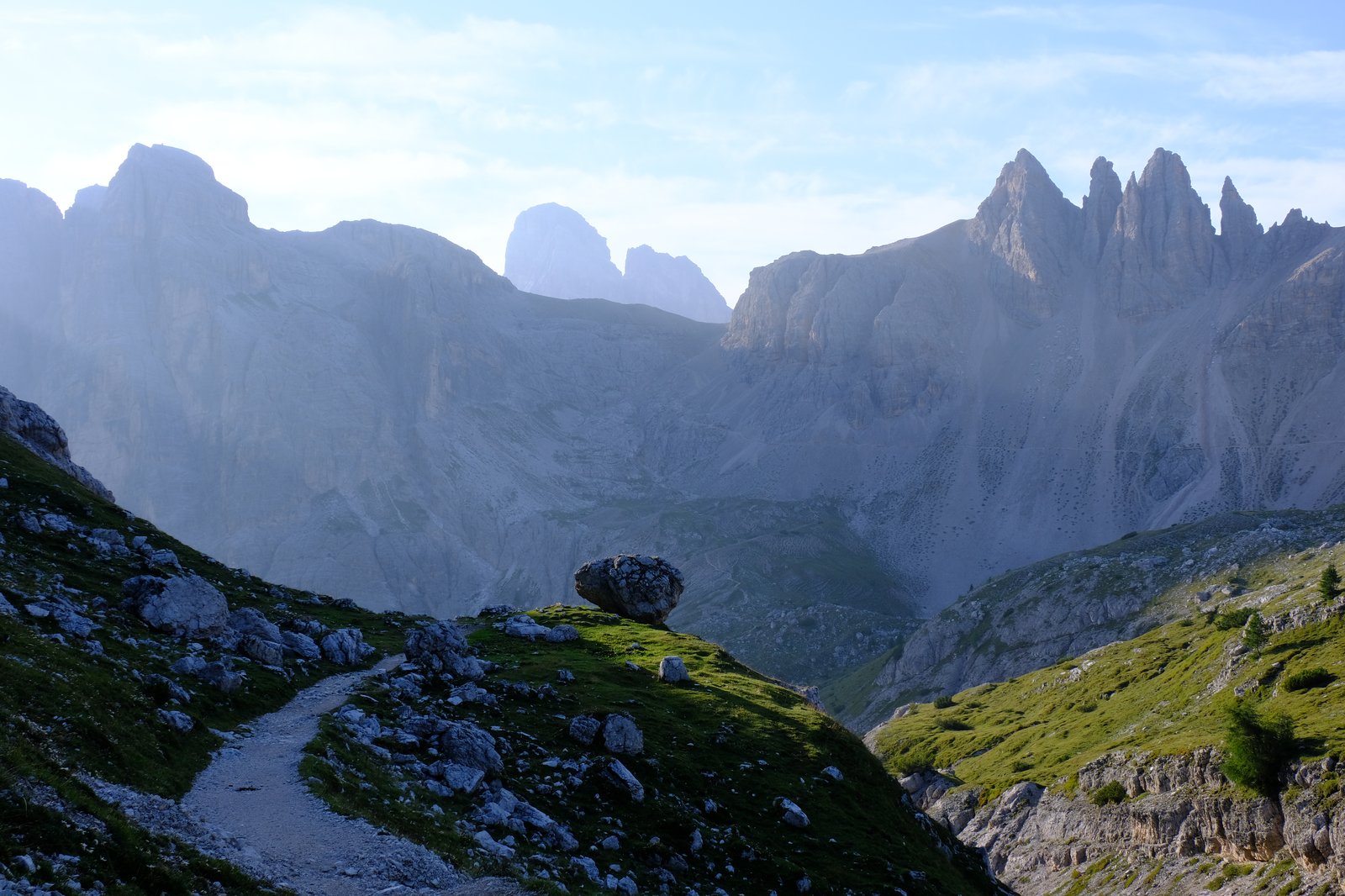
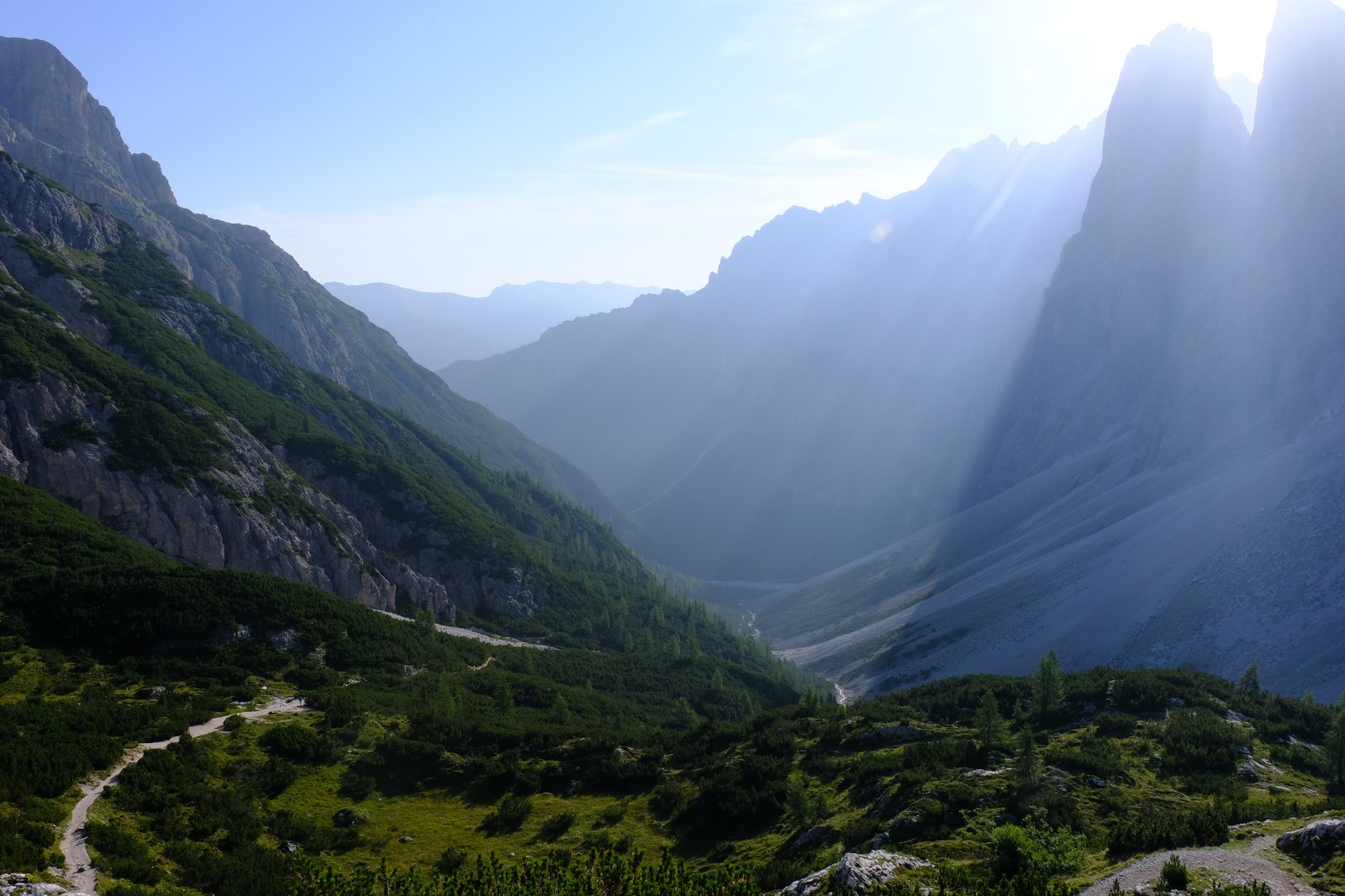
The descent along the more touristed approach was comparatively gentle and I couldn’t resist running much of the way down. One quintessentially American day hiker hollered out “Run Forest, Run!” as I went by. Later, the day having become uncomfortably hot, I sheltered in a church with a good book, not to be confused with The Good Book, and made a note to return to the Dolomites one day, perhaps when they’re under snow.
Two posts in two days, the better part of five thousand words! So don’t be too surprised if you hear only little drips from here to Bosnia. Less talking, more walking.